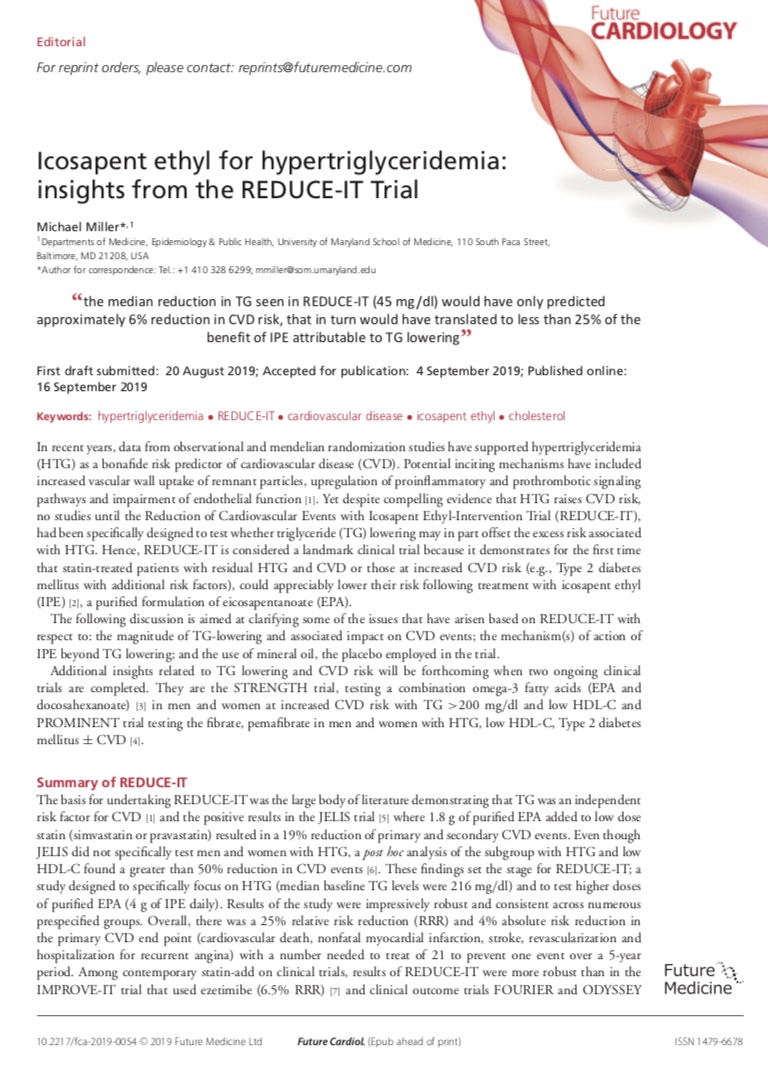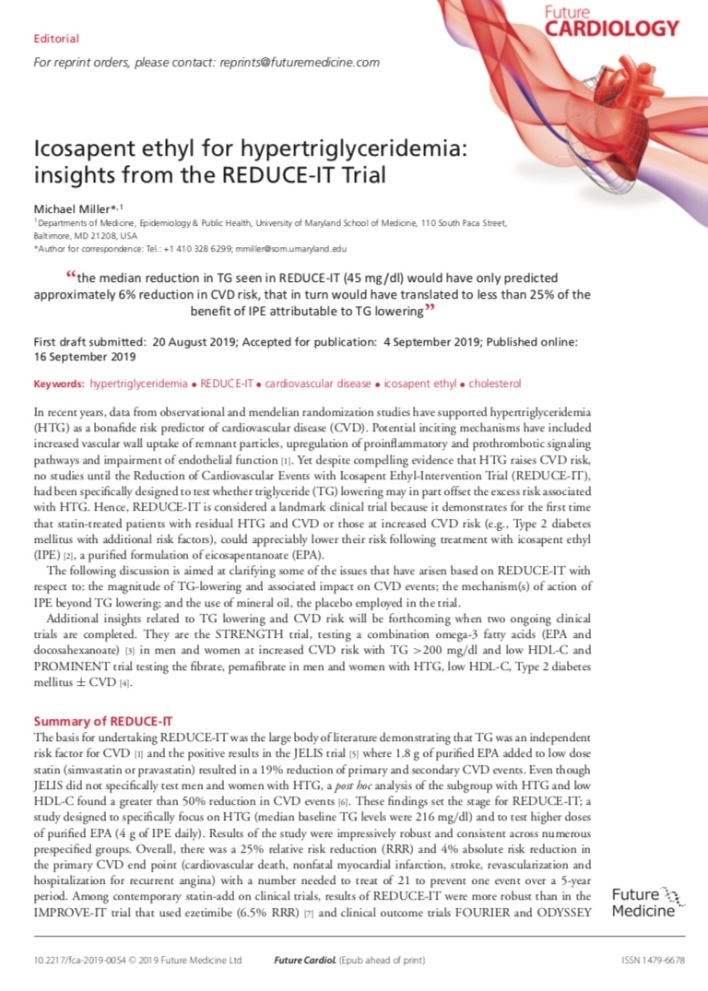
We’ve appreciated for many years that lowering levels of LDL cholesterol directly contributes to reduction in the risk of a cardiovascular event. However, it has been less clear whether (or to what extent), triglyceride lowering may also contribute to reducing the risk of heart attack, stroke or death from cardiovascular disease. In our editorial just published in Future Cardiology, we would predict that less than 25% of the cardiovascular benefit observed in the REDUCE-IT trial was directly attributable to triglyceride lowering. This supports other pleotropic effects of Icosapent Ethyl (Vascepa®) that contributed to the large benefits observed in the study.
In fact, a newly published analysis supports the tenet that lowering of LDL cholesterol has a greater impact in reducing cardiovascular risk than lowering of triglycerides. That is, a 40 mg/dL reduction in LDL cholesterol corresponded to an approximate 20% reduction in cardiovascular risk whereas a 40 mg/dL reduction in triglycerides only correlated to an 8% reduced risk. In REDUCE-IT, triglycerides were lowered by nearly 45 mg/dL on average . Therefore, triglyceride lowering would have only played a modest role when compared to the benefits observed.
Bottom Line: While high triglycerides contribute to increased cardiovascular risk, the benefits observed in REDUCE-IT extend well beyond triglyceride lowering. In other words, REDUCE-IT to some extent supports, but does not prove the triglyceride hypothesis.
Dr. Michael Miller is a Professor of Cardiovascular Medicine at the University of Maryland School of Medicine in Baltimore, Maryland USA. HIs most recent book is “Heal Your Heart: The Positive Emotions Prescription to Prevent & Reverse Heart Disease” now published by Penguin Random House.





